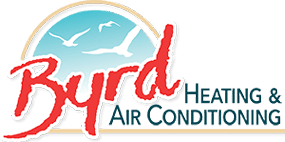In Savannah, Georgia, spring is a great time to find ways to lower your energy consumption at home. These include upgrading your lighting, replacing your HVAC air filter, installing a programmable thermostat, and more. Discover what you can do to create a more energy-efficient home.
Update the Lighting
If you’re like most Savannah homeowners, you turn your home’s lights on and off multiple times each day. If you haven’t installed new lighting or replaced a light bulb recently, you might not have given your lighting usage a second thought. Since lighting technology has advanced considerably, you can’t find a better time to reconsider the lights throughout your home than the present.
When you buy new light bulbs, look for ones with the Energy Star label. This certification means that the bulbs meet national guidelines for energy efficiency and can help lower greenhouse gas emissions.
In fact, most Energy Star light bulbs use up to 90 percent less energy than older incandescent bulbs. These bulbs last up to 25 times longer and produce up to 90 percent less heat. With reduced heat output, you can save energy on air conditioning throughout the spring.
Turn on the Ceiling Fan
As temperatures climb throughout the spring, you might be tempted to set your air conditioner to summer mode. While the air conditioner will keep you cool, however, air conditioning itself isn’t the most energy-efficient way to stay comfortable in the spring.
Rather than relying on the air conditioner, turn on your home’s ceiling fans instead. These devices circulate air throughout a room, creating a draft with serious cooling power. In fact, ceiling fans create a low-level wind chill effect that causes sweat to evaporate from your skin and helps you feel cooler overall.
As one of the most effective types of fans, ceiling fans allow you to dial back the air conditioner by about four degrees while still remaining cool and comfortable. In the spring, be sure to set your ceiling fans to rotate counterclockwise to create a cooling effect.
Redecorate the Windows
After winter, throwing open the curtains to allow sunshine and fresh air to enter your home sounds like a great idea. Unfortunately, leaving either the windows or the curtains open throughout the day can lead to significant energy loss.
This spring, think about redecorating your home’s windows to maximize energy efficiency. Outside, awnings can add shade and lower the amount of heat that your home absorbs from the sun. In fact, awnings can reduce solar heat gain by 77 percent on windows that face west. Keep in mind that awnings need ventilation so that they don’t trap hot air around the windows.
Inside, add blinds to let in sunlight while decreasing solar heat gain by up to 45 percent. While you might think of curtains as winter window décor, draperies can reduce solar heat gain by up to 33 percent, as long as you keep them closed during the day. If you’d rather not block the sunlight with curtains, mesh window screens and high-reflectivity films are also smart options that help you save energy on cooling.
Tighten Your Home’s Envelope
Insulation isn’t only a winter necessity. While insulation helps keep chilly drafts out during the winter, it also prevents warm air from entering your home during the spring and summer. You can update your home’s insulation by sealing windows, door frames, and cracks in the foundation or attic.
If your home’s insulation needs more significant attention, call us for a professional assessment. We can inspect your attic insulation, identify drafty areas, and make recommendations for addressing any issues we find. When you tighten your home’s envelope, you’ll benefit from more efficient HVAC operations and lower energy consumption overall.
Rethink the Water Heater
To stay warm during the winter, you might take a hot shower or bath. As outdoor temperatures start to rise in the spring, it’s time to rethink how you use your water heater. You can increase your home’s overall energy efficiency by both adjusting the device’s settings and changing your water use habits.
Start by checking the water heater’s temperature settings. Reduce the temperature to 120 degrees for an ideal balance between comfort and energy efficiency. If you haven’t already insulated the unit, add manufacturer-recommended insulation around the storage tank. Finally, change your hot water usage; take shorter showers or baths to decrease your energy consumption.
Replace Your HVAC System’s Air Filter
Your home’s HVAC system relies on an air filter to prevent dirt, dust, and debris from entering the components and compromising their performance. Be sure to check the air filter every month and replace it at least every three months. Since the air filter will trap more debris and allergens the more you use your system, changing the air filter every month is critical during high-usage times, such as late spring and summer.
In addition to keeping your HVAC system running smoothly, a clean air filter will also help the system run as efficiently as possible. Dirty air filters make the system work harder to cool your home, and clogged air filters can compromise airflow and increase energy consumption.
Improve Indoor Air Quality
You might think of your home as an oasis that’s free from outdoor pollution. In reality, however, indoor air is often more contaminated than outdoor air. Not only does outdoor pollution make its way inside when you open doors and windows, but allergens like dust, mold, and pet dander can also thrive in your home’s indoor air. Indoor air pollution can compromise your family’s health and increase your home’s energy usage.
Consider solving indoor air quality problems by installing new components on your existing HVAC unit. A whole-home dehumidifier, for example, can help reduce humidity-loving allergens like dust mites and enable your air conditioner to run more efficiently. An air purifier can make your air cleaner and easier to breathe while easing the load on your HVAC system.
Schedule HVAC Maintenance
Even if you have a new HVAC system, regular preventive maintenance will help the system run as efficiently as possible. Schedule maintenance in the spring and in the fall so that one of our experienced technicians can change the air filter, check all moving parts, and assess repair needs. With regular biannual maintenance, you can feel confident that your HVAC system will run at peak efficiency throughout its lifespan.
Install a Programmable Thermostat
If your home still relies on a manual thermostat, you’ll find that a programmable thermostat changes your home’s potential for saving energy. After installing a programmable thermostat in your home, our HVAC technicians can help you understand the unit’s settings to optimize your energy consumption.
Set the thermostat to a reasonable temperature while the family is home and program it to dial back the temperature while you’re out for the day or asleep at night. Set the thermostat back by 10 degrees, and you’ll reduce your energy consumption year-round, as well as save up to 15 percent on your utility bill.
Shop for Energy Star Appliances
Replacing your old air conditioner might seem wasteful, but if the unit is more than 10 years old, it’s probably overdue for an upgrade. Not only do new cooling systems have the latest high-tech features, but most are also much more energy-efficient systems than older units.
When you’re looking for a new air conditioner, be sure to look for one with an Energy Star label. Like your home’s water heater and light bulbs, your air conditioner can also benefit from Energy Star certification. All cooling systems with this label meet energy-efficiency guidelines established by the U.S. Environmental Protection Agency.
Energy Star-certified air conditioners and heat pumps have a Seasonal Energy Efficiency Ratio (SEER) rating of at least 15. These units may use much less energy than older, inefficient models. Although a new air conditioner or heat pump comes at a cost, this investment can easily pay for itself with utility savings and reduced energy consumption over the lifetime of the unit.
Ready to put some of these energy-saving ideas into action? Contact one of our home heating and cooling experts at Byrd Heating and Air Conditioning today: 912-373-8447.
Image provided by Shutterstock


